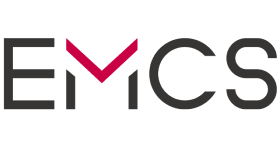Upon presenting the bills for the 2nd reading, the Parliamentary Secretary for Financial Services, Digital Economy and Innovation, described the upcoming Cryptocurrency laws as a "world-first", which would make Malta a global pioneer in this sector.
These bills were presented in Parliament on the 24th April, 2018 and second reading has started on the 6th June 2018. 2nd reading was concluded on the 26th June, 2018 and the final 3rdreading was concluded on 4th July, 2018. The 3 pieces of legislation are as outlined in the below image:-

The Malta Digital Innovation Authority Bill (the "Bill"), provides for the establishment of an Authority to be known as the Malta Digital Innovation Authority ("MDIA" or "Authority").
MDIA's role will mainly comprise two main aspects which are interlinked. It will seek to promote and develop the innovative technology sector in Malta by means of providing formal recognition and regulation of relevant innovative technology arrangements and related services. The innovative technology arrangements comprise those elements including software, codes, computer protocols and other architectures used in the context of distributed or decentralised ledger technology (DLT), smart contracts and related applications.
It is envisaged that these two main roles will be undertaken in full respect of the importance of not hindering innovation and the efforts and potential of the start-up sector in this innovative technology area whilst still ensuring that there are standards in place for the protection of consumers and investors, the integrity of the market and the public interest in general. This balancing approach is significant because it shows that Malta has made it its top priority to protect consumers and investors without hindering the development of the much-needed innovative technology business which is being intermixed with and utilised in a variety of sectors.
The MDIA's role as a regulator will include, amongst others, the granting, issuance, refusal, revocation, cancellation or suspension of authorisations with respect to the provision of innovative technology arrangements or services provided in or from Malta. When it comes to its supervisory role, it will keep under review all practices and activities which will be regulated by the provisions of this Bill, once it is enacted as an Act, and any other applicable laws which the Authority will be entitled to administer or enforce. Moreover, it will have the power to investigate allegations of practices and activities detrimental to consumers and to determine when innovative technology arrangements and services are exempt from particular legal requirements. It will also have the power to issue rules which shall be binding on innovative technology authorisation holders and others specified therein.
It will therefore strive to promote transparency in the innovative technology business by establishing a register containing a list of all holders of innovative technology authorisations and by compiling a second list stating the reasons why it refused particular applications, which information will be maintained on its website for three months. On the one hand, this measure will ensure that applicants request for authorisations in respect of legitimate businesses. On the other hand, this public information will then be useful in assisting other regulatory authorities, whether local or international, in carrying out their functions. Further powers which the Authority will be entitled to exercise are enforcement powers such as inter alia requesting information, searching and inspecting premises, undertaking site inspections, testing machinery, apparatus, appliances and other equipment at any place as the Authority may consider necessary and imposing administrative fines.
Due to the fact that most forms of innovative technology solutions may overlap with existing regulatory mandates, the MDIA shall at all times coordinate with other competent authorities such as the Malta Financial Services Authority, the Malta Gaming Authority, the Malta Information Technology Agency, the Malta Competition and Consumer Affairs Authority and the Malta Statistics Authority so that it ensures that there is no replication of work and controls.
The legislation with which the MDIA will work with is the 2nd piece of legislation being enacted. This is the Innovative Technology Arrangements and Service Act. This Act provides for the voluntary registration of Technological arrangements. Technological arrangements are presently defined as only being only being DLT and smart contracts but he act also provides to eventually include other future technological arrangements. This Act also provides for the licensing of service providers which will be system auditors and technical administrators. This Bill also includes the concept of the resident agent when the persons making an application for any form of recognition are not ordinarily resident in Malta.
The 3rd piece of legislation is the Virtual Financial Assets (VFA) Act. This Act clearly outlines the difference between a virtual token, a financial instrument or a virtual financial asset. The definitions given are the following:-
"virtual token" means a form of digital medium recordation that has no utility, value or application outside of the DLT platform on which it was issued and may only be redeemed for funds on such platform directly by the issuer of such DLT asset.
"financial instrument" shall have the same meaning assigned to it under the Second Schedule to the Investment Services Act, whether or not issued in Malta i.e. Transferable securities, money market instruments, derivatives etc....
"virtual financial asset" or "VFA" means any form of digital medium recordation that is used as a digital medium of exchange, unit of account, or store of value and that is NOT - (a) electronic money;(b) a financial instrument; or (c) a virtual token.
The Act also establishes the need of having a Financial Instrument (FI) test done to reach a determination on how a DLT asset should be classified. The Test will consist of two stages, wherein the first stage would effectively determine whether a particular DLT asset qualifies as a Virtual Token (‘VT'). Subject to a negative determination during the first stage, the second stage would determine whether the DLT asset would qualify as a financial instrument under Section C of Annex 1 to MiFID. Should a negative determination be reached again during this stage, then the DLT asset would qualify as a Virtual Financial Asset (‘VFA') under this bill.
If it is determined that the DLT asset is a VFA, to licence an initial virtual financing offering (ICO), there would need to draw up a whitepaper and have it delivered to MFSA at least 10 working days before the intended publication date and appoint a licensed VFA Agent which will guide the issuer on drawing up this whitepaper and be the only point of contact between the issuer and the MFSA. Such VFA agent will also be responsible to do all KYC and due diligence procedures on the issuer. VFA agent also needs to submit to MFSA on an annual basis a certificate of compliance on behalf of the issuer.
The VFA Act also provides for the licensing of various service providers. These are:-
- Reception and Transmission of Orders
- Execution of orders on behalf of other persons
- Dealing on own account
- Portfolio Management
- Custodian and Nominee Services
- Investment Advice
- Placing of Virtual Financial Assets
- Operation of a VFA Exchange
A VFA exchange is defined as a a DLT exchange operating in or from within Malta, on which only virtual financial assets may be transacted in accordance with the rules of the platform or facility. This means that such VFA exchange will not be allowed to transact to the other DLT asset types, not defined as Virtual Financial Assets (i.e. electronic money or financial instruments). However the VFA exchange will be allowed to do (i) VFA-to-VFA exchanges, (ii) fiat-to-VFA exchanges and (iii) VFA-to-fiat exchanges.
Way Forward – Consultation on Virtual Financial Assets Regulations just issued by MFSA
The proposed regulation outlines the activities that are exempted from the need of obtaining a VFA service licence. These exemptions include persons dealing on own account in terms of the Act and not providing any other VFA services or performing any other activities in virtual financial assets. For the purposes of this exemption, dealing on own account shall mean the trading by a person in its own name and against proprietary capital resulting in conclusion of transactions in one or more virtual financial assets. However, this exemption shall not be automatically operative but its applicability shall be subject to the determination in writing by the competent authority that the requested exemption applies.
The regulation also clearly outlines the various VFA service licences available. These are:-
| VFAA Class 1 | Licence holders authorised to receive and transmit orders and, or provide investment advice in relation to one or more virtual financial assets and, or the placing of virtual financial assets. |
| VFAA Class 2 | Licence holders authorised to provide any VFA service and to hold or control clients' money, but not to operate a VFA exchange or deal for their own account. |
| VFAA Class 3 | Licence holders authorised to provide any VFA service and to hold or control clients' money, but not to operate a VFA exchange. |
| VFAA Class 4 | Licence holders authorised to operate a VFA exchange and to hold or control clients' money, virtual financial assets and, or private cryptographic keys and custodian or nominee services solely in relation to the operation and activities of such VFA exchange. |
Finally the proposed regulations outline the relevant fees, which are:-The regulation also outlines the duties of the subject person in the case of it as holder of a VFA service licence, has control over the assets belonging to its customers. Such duties include the obligation of holding proper and adequate records.
| Application Fee | Annual Supervisory fee | |
| Whitepaper Registration | 4,000 EUR | 1,000 upon submission of certificate of compliance |
| VFAA Class 1 Licence | 3,000 EUR | 2,750 EUR (up to annual revenue of 50,000 EUR)+ 350 EUR or part thereof for further tranches of 50,000 EUR, up to a maximum of 1,000,000 EUR |
| VFAA Class 2 Licence | 5,000 EUR | 4,500 EUR (up to annual revenue of 250,000 EUR)+ 400 EUR or part thereof for further tranches of 250,000 EUR, up to a maximum of 5,000,000 EUR |
| VFAA Class 3 Licence | 7,000 EUR | 6,000 EUR (up to annual revenue of 250,000 EUR)+ 400 EUR or part thereof for further tranches of 250,000 EUR, up to a maximum of 50,000,000 EUR |
| VFASS Class 4 Licence | 12,000 EUR | 25,000 EUR (up to annual revenue of 1,000,000 EUR)+ 2,500 EUR or part thereof for further tranches of 1,000,000 EUR, up to a maximum of 100,000,000 EUR |










